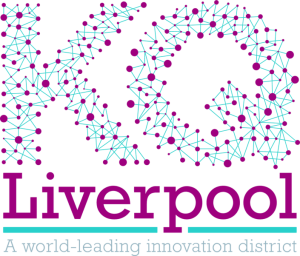Colin Sinclair, chief executive of Knowledge Quarter Liverpool
With the recent announcement that Liverpool City Council has appointed Morgan Sindall to lead the next phase of works at Paddington South, at its flagship Paddington Village site, we’re excited that further progress will soon be made towards realising the huge potential of our new urban village.
It also got me thinking. As Paddington Village continues to grow – and deliver large elements of the LCR Health and Life Sciences Investment Zone’s ambitions – how do we ensure that as a place Paddington and its neighbouring communities feel ‘connected’ to the rest of the Knowledge Quarter and, in turn, to the wider city centre and region.
The importance of ‘feeling’ connected
For KQ Liverpool to grow as a truly world-class innovation district, it must have a connection and impact that extends way beyond its physical boundaries. A positive impact on the communities that surround it, and reaching out across the whole City Region. People who live, work or invest here need to see and feel that physical and social connection – that they are part of something bigger.
This applies to newcomers and to long-time residents. We need to inspire young people, not only through our KQ Liverpool Future Innovators and Careers Insights programmes, but also through the way we design the places and spaces where they live, study and will, in the future, work.
For obvious reasons, we love our anatomical connotations here in KQ Liverpool, from The Spine building to Sciontec’s plans for HEMISPHERE. So, forgive me for pointing out that a beating heart is of little use if it’s disconnected from the arteries and veins it needs to thrive.
The physical symbols of a place – the bricks and mortar – its buildings, institutions or welcome signs – tell us it exists, and if you look at a map it might suggest it’s next to other places, and thus ‘connected’.
Yet, that’s not always how it ‘feels’. Sometimes, places can be surrounded, but feel isolated or incongruous. So what can we do to cultivate a strong sense of integration between different places, within KQ Liverpool and at Paddington Village?
People first
Creating a connected community begins and ends with people. Public places are intended to attract people, so it’s crucial to consider why people use a place and how we can adapt it to make that use more accessible, enjoyable or effective.
Our spin out development company Sciontec is very good at fostering connections within its buildings, whether at Liverpool Science Park or within The Spine, but what about connecting people across buildings, workplaces, labs and communities.
Events are a primary example of how to bring people together, and a central part of our plans moving forward is to ensure that Paddington Village plays its part in city-wide events, whether they be cultural, commercial or educational.
Not just when it’s ‘finished’ but now – the so-called ‘meanwhile’ uses. We should be using Paddington Square, bordering The Spine, HEMISPHERE and Novotel, as well as the new green spaces at Paddington South, even before they are finished as these will become key locations for community activities in the years ahead.
Avoid accidental disconnection
When new developments are conceived and delivered, it can often lead to a sense of dislocation, where the pre-existing space ends and the shiny new stuff begins. The last thing we want is ‘ivory towers’ surrounded by discontent.
However, you see this happening in towns and cities all over the world. A programme of regeneration is far too often targeted at a certain location within a specific boundary, which works well in theory, but all too often it becomes a living, physical boundary too, as the new paving gives way to older tarmac pavement, or new street signage stands out against the worn signage on the next corner.
The development of Liverpool One overcame this intelligently by instructing different architects across the site, resulting in a mix of themes and styles that complemented its surroundings and bled into existing streets. There isn’t a hard boundary, it’s open and welcoming.
This kind of accidental disconnection is exactly what we aim to avoid across KQ Liverpool, including Paddington Village, as new developments are brought forward. Instead, we want to fuse across boundaries, seamlessly.
Signage and furniture
Consistent and high quality pavements, lighting, signage and street furniture – ‘public realm’ – not only make moving around a place more comfortable, they can also help to create a sense of ‘arrival’. This can be even more effective if they’re used across micro-boundaries to make areas feel more joined-up.
By adopting the same quality of signage and furniture throughout KQ Liverpool and into Paddington Village, we can hope to subtly create the feeling that a person has remained in one, unified space.
Within our new public realm, we can also include nods to the wider area, perhaps with art installations depicting major landmarks, or signage that illustrates its proximity to and natural interaction with the city region.
Moving around
Paddington Village is located to the east of Grove Street, an arterial road running north to south, providing access to the city’s universities and health campus, plus connections to the major road network. Wide, busy roads can present a challenge when creating connected places by introducing an element of reticence or even danger to people’s decision-making.
We will continue to work with the City Council and University of Liverpool to understand ways to minimise both the aesthetic and safety impact of this divide and maximise connectivity at its key junctions. We know the road is essential, so how do we mitigate its challenges to improve the sense of connection between Paddington Village and the rest of KQ Liverpool?
The first step is to make it as friendly as possible to pedestrians and cyclists moving within the innovation district. Wider pavements, phased traffic signals and dedicated cycle lanes can all help to alleviate the sense of severance, while additional trees and other greenery support greater wellness and complement plans for green space at Paddington South, creating one seamless stretch of nature.
Other simple ideas include consolidating loading bays or relocating them to side streets to avoid unnecessary impediments and noise, and introducing consistent road and pathway surfacing to create that sense of thoroughfare.
Public transport can play a crucial role. A regular, sustainable KQ Liverpool rapid transit route looping from Paddington Village into the heart of the city centre could transform that feeling of connectivity, reduce the perception of distance and reinforce a single destination. The essence of trackless trams we have proposed in the past is now in sight with the showcasing of the ‘glider’ buses recently in the city.
Introducing the ‘gliders’ or trackless trams would harness the combined strengths of the innovation corridor from Central Station up Brownlow Hill, branching out to capture many of the area’s key innovation assets; the universities, Liverpool Science Park and the health campus, going on to Anfield or the film studios planned for Edge Lane.
Bespoke measures
There are no fix-all solutions. Close to home in recent times, we’ve seen the advent and decline of skyways in Liverpool, new towns such as Skelmersdale experimenting with roundabouts and underground passageways, with very mixed success, and the pros and cons of pedestrianisation in towns such as St Helens.
The key is for us to find a balanced blend of measures that works right here, right now to create sustainable improvements, and that’s what KQ Liverpool is working hard to do alongside its stakeholders and partners. Never before have we had such an inventive, progressive and joined up approach from the City Council to the City Region and the Universities to the NHS. So watch this space!

